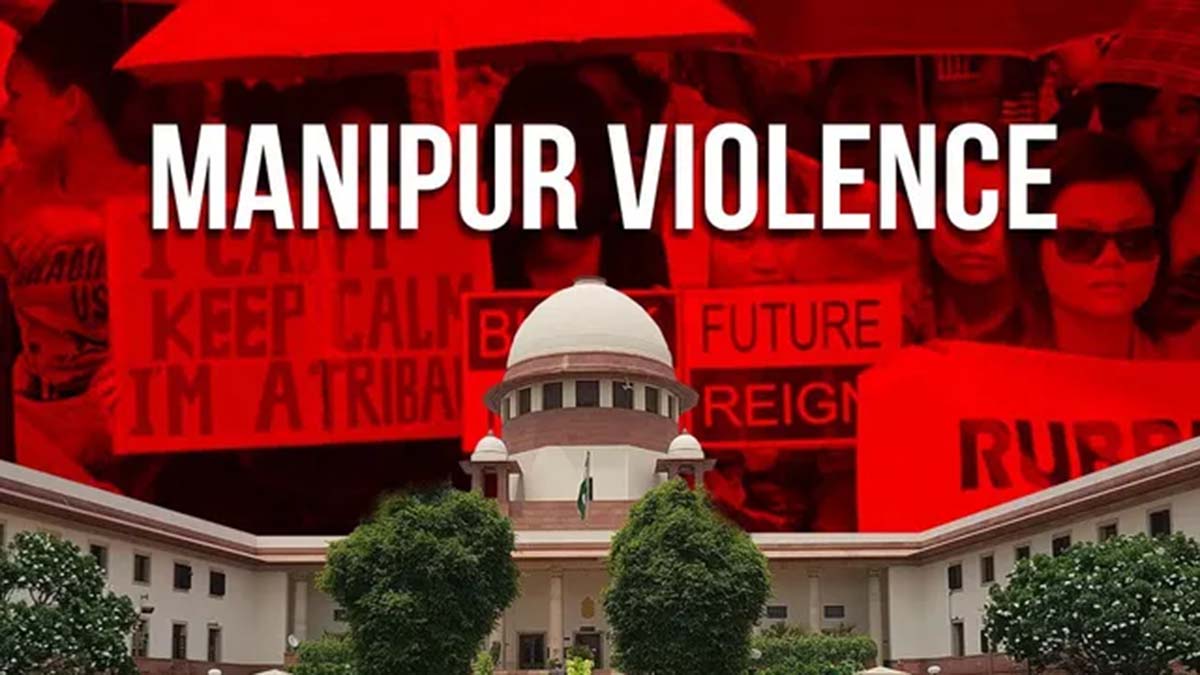
On Tuesday, November 28, the Supreme Court issued detailed directives regarding the burial or cremation of bodies of tribals who had been killed in the prolonged state’s ethnic violence. A committee appointed by the Supreme Court had reported to the Court that among the 175 bodies in mortuaries, 169 had been identified, with 81 claimed and 88 unclaimed. The Manipur government has now designated nine sites for burial or cremation.
The bench, led by Chief Justice DY Chandrachud, with Justices JB Pardiwala and Manoj Misra, today emphasised that the bodies cannot remain indefinitely in mortuaries, given that the violence broke out in the state in May 2023. The following directions have been issued:
- The next of kin of the bodies which have been identified and claimed may carry out the performance of last rites of bodies at any of the identified 9 sites without interference from third parties.
- The State authorities shall intimate the next of kin of the identified bodies. This exercise shall be done by next Monday.
- As regards bodies identified but not claimed, state administration shall issue communication to the next of kin by next Monday.
- The State is permitted to carry out burial/cremation of unidentified bodies with due observance of religious rites.
- The Collector and SP shall be at liberty to take appropriate steps for the maintenance of law and order so that burial/last rites happen in an orderly fashion.
- The State shall ensure drawing of DNA samples which weren’t drawn during autopsy.
- The state is at liberty to issue a public notice stating that if bodies which are identified aren’t claimed within one week, the state will be at liberty to carry out last rites.
- A grievance has been raised that several bodies are lying in Imphal. State administration shall take facilitative steps so that next of kins in relief camps or otherwise can accept bodies for last rites. We direct the chief secretary and state administration shall take appropriate steps in this regard.
Heated arguments in SC
The directions were passed after an elaborate hearing, which also witnessed sharp exchanges, especially between Senior Advocate Colin Gonsalves (for the petitioner) and Solicitor General of India Tushar Mehta.
When the matter was taken, CJI DY Chandrachud drew the attention of the parties to the report submitted by the committee led by former High Court Chief Justice Gita Mittal. According to the report, some civil society organizations in Manipur were trying to escalate ethnic tensions by asking people not to claim the dead bodies.
“The next of kin of those bodies identified are willing to claim bodies, but certain civil society organizations are preventing them. The state government has identified 9 burial sites. Burial can’t be outside these sites. The civil societies are insisting that burial should be in some unidentified sites, which is creating tension,” CJI said after perusing the report.
The petitioners (tribal organizations who have filed petitions seeking a court-monitored probe into the violence) took an objection that the report has not been shared with them and has been leaked to the press.
Colin Gonsalves told the bench that a meeting had taken place between the officials of the Centre, the State, and tribal groups in which some consensus was reached. He, therefore, requested the bench to defer the passing of any directions so that the issue could be resolved through a consensus. The Advocate General for Manipur told the bench that the meeting was between officials and requested time to get instructions. It was at this juncture, the bench said that it will pass certain directions.
Gonsalves then stated, “We want to know the nine sites.” This drew a sharp response from the Solicitor General, “Who are ‘we’?” The SG alleged that the organisations are fomenting trouble, though the next of the kin of the victims is ready to receive the bodies. Gonsalves then stated that he was representing the next of kin and told the SG, “Don’t bully us, the tribals.” SG said that he is not bullying tribals but was opposed to organizations with vested interests.
CJI DY Chandrachud orally said that he cannot accept an “obstructionist” approach against the burial of the bodies and will not allow “to keep the pot boiling over the dead bodies.”
Gonsalves said that as per tribal custom, bodies are buried collectively in a common grave. Senior Advocate Indira Jaising, appearing for another petitioner, urged the bench to ensure that the bodies are buried with dignity as per the customary or religious practices. She also suggested that the DNA samples be drawn and stored from the dead bodies for being used as evidence in the criminal trials. The Solicitor General agreed to both suggestions.
SG urged the bench to direct that organizations do not interfere with the burial of the bodies.
“If the next of kin wants to take the bodies, these groups threaten them. My lords may say if the next of kin wants to take the dead body then nobody would come in the way,” he urged. Accordingly, the bench directed that the burial/cremation of the bodies be done “without interference from third parties.”
As the hearing was being concluded, there were more exchanges between Gonsalves and the SG.
“Have some shame solicitor! Why are you aggressive with the victims?” Gonsalves said. SG retorted, “My friend should understand that he is not in Jantar Mantar. I know what his problem is.”
Senior Advocate Vibha Datta Makhija, appearing for the judges’ committee, told the bench that the tribal organizations have placed fifty empty coffins before the office of the District Collector, obstructing the work of the officials. CJI orally said that the empty coffins can be removed.
